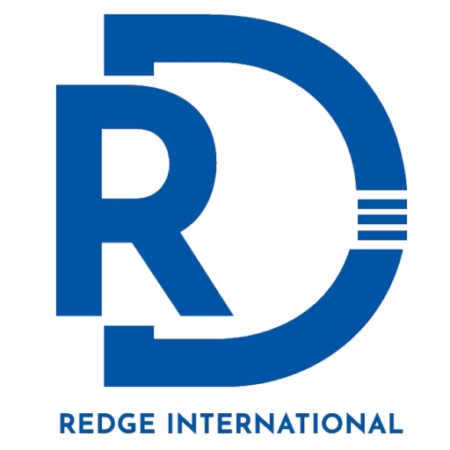Obtaining a study visa in Ireland requires attention to detail and adherence to Ireland’s study visa requirements. By understanding and fulfilling these criteria and avoiding common mistakes, international students can increase their chances of a successful visa application. The process of obtaining a study visa can be intricate and demanding. Here we will discuss Ireland’s study visa requirements and highlight common mistakes to avoid, ensuring a smoother application process for prospective students.
Requirements for an Ireland Study Visa
Enrollment in a Recognised Institution: To be eligible for a student visa, you must be accepted into a full-time, recognized educational program in Ireland. This program must be on the Interim List of Eligible Programmes (ILEP). Your chosen institution should guide you on whether your course qualifies.
Letter of Acceptance: Upon receiving an offer for your chosen program, you’ll receive a formal Letter of Acceptance. This letter confirms your enrollment details and is a vital part of your visa application. Ensure that the letter includes:
- Your name
- Full details of the course (duration, timetable, etc.)
- Total fees charged.
- Confirmation of any fee amounts you have already paid.
English Proficiency: Most Irish institutions and the visa authorities require you to demonstrate proficiency in English. This is commonly done through standardized tests like:
- IELTS (International English Language Testing System)
- TOEFL (Test of English as a Foreign Language)
- PTE Academic (Pearson Test of English)
Check the exact score requirements with your institution and familiarize yourself with the preferred test format.
Financial Capacity: Provide clear evidence that you can support yourself financially during your stay in Ireland. This includes:
- Sufficient funds to cover tuition fees for at least one academic year.
- Evidence of approximately €7,000 to support your living expenses per year.
- Evidence of funding for unexpected medical costs.
- You may present bank statements, proof of scholarships, or details of sponsorships to fulfill this requirement.
Private Medical Insurance: International students in Ireland must have approved private medical insurance. Your chosen university may assist with arranging this. Be sure to acquire your insurance coverage before applying for the visa.
Statement of Purpose: Clearly express your intent and motivations for studying in Ireland. A convincing Statement of Purpose should outline:
- The reasons you chose this particular program and institution.
- How this academic pursuit will benefit your future goals.
- Your determination to return to your home country upon completing your studies.
Health Requirements: Ireland may have specific health requirements for long-term students. Be prepared to complete medical examinations if required.
Biometrics: In certain cases, applicants may need to provide biometric information, such as fingerprints and photographs, as part of the application.
Visa Application Fee: The student visa fee can vary. Check the Irish Naturalisation and Immigration Service (INIS) website for the latest information and mode of payment.
Important Note: Visa requirements evolve over time. It’s essential to stay updated with the latest information by visiting the INIS website (https://www.irishimmigration.ie/) or consulting your university’s international student support office.
Common Mistakes
Incomplete Documentation
Meticulously review the specific document requirements for your Irish student visa application. Gather and submit all required paperwork, including acceptance letters, transcripts, financial records, and more. Incomplete documentation is a major cause of delays or rejection.
Neglecting English Proficiency Requirements
Ireland has specific English language standards for study visas. Demonstrate your fluency with an approved test (like IELTS or TOEFL). Make sure your score meets the minimum requirements set by your university and the Irish visa authorities.
Insufficient Financial Evidence
Clearly outline your financial resources to cover the duration of your stay. This includes tuition fees, living expenses, and any travel costs. Insufficient financial proof raises concerns about your ability to support yourself and can jeopardize the visa approval.
Last-Minute Filing
Visa processing for Ireland can take time. Start your application well in advance of your intended departure date. This allows time to resolve unexpected issues and ensures a smoother process.
Failing to Provide a Convincing Statement of Purpose
Your Statement of Purpose is critical. Articulate your clear academic goals for studying in Ireland and how this degree will benefit you back home. Demonstrate a genuine intent to return to your home country after completing your studies.
Overlooking Medical Requirements
Ireland may have specific health examinations or insurance requirements for international students. Schedule these early in the process to avoid delays and ensure you meet any health standards.
Carelessness with Personal Information
Triple-check your application for accuracy. Mistakes in your name, passport details, contact information, or academic history could cause complications or delays in your visa process.
Additional Tips
- Research: Familiarize yourself with the latest visa guidelines on the official website of the Irish Naturalisation and Immigration Service (INIS).
- Seek Guidance: Consider contacting your chosen university’s international student office or a reputable visa consultant for assistance and up-to-date information.
For tailored guidance on the visa application process reach us on https://wa.me/+254714898807 or email us now talk2us@redgeinternational.com.
With a keyboard as his wand and data as his magic potion, Mwangi Njoroge is the sorcerer behind the screens. When he’s not deciphering the secrets of the digital realm, you can find him conjuring up social media spells to captivate the online audience.
In his daily quest, Mwangi oversees content creation like a content wizard, analyses data like a data wizard, turning chaos into charts and transforming raw data into strategic wisdom while managing digital campaigns like a true marketing magician.




